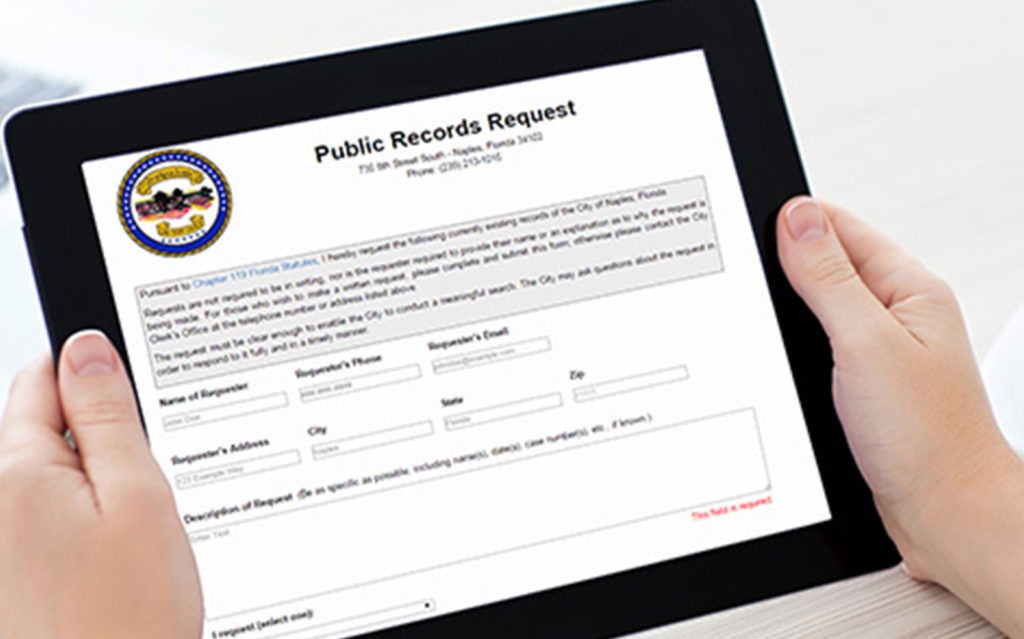The Problem
Public records requests have become more difficult to manage as the number of people requesting access increases. In September of 2015, the city of Deer Park, Texas, turned to MCCi and its JustFOIA system to help streamline and better manage their public records request process.
Deer Park, with a population of 33,000, receives only about 15 to 20 records requests a month, but it was important for them to find a better solution for handling public record requests.
“Before JustFOIA, our open records request process was a bit time-consuming,” said Sonia Acosta, the records technician for the City of Deer Park.
“There were a lot of papers being taken to and from different departments; literally walking to each department and dropping off the records requests, as well as making a lot of copies to fill those requests. And now, with JustFOIA, the time we spend on our records process has decreased dramatically.”
The Solution
JustFOIA is an affordable, web-based, user-friendly system developed and distributed by MCCi, designed specifically to help manage and track public records requests. MCCi began developing the JustFOIA system in 2011 with a few focus group agencies, and still meets with those agencies regularly to discuss suggested improvements and updates to the system.
In JustFOIA, records requests are submitted online through an intuitive and configurable form. Requests received in email or paper form outside of the system can be entered into JustFOIA by a records technician.
When records requests come in to the City of Deer Park, instead of making copies of the requests and walking them to the appropriate departments, Acosta logs in to JustFOIA and checks a box to route the request to the proper department. Acosta is notified by JustFOIA when a request comes in, and departments are notified when a request is routed to them. When the department completes the request, Acosta is notified again.
Adding necessary documentation or notes to each request is a feature Acosta says she often utilizes to remind departments of the deadline to complete the request.
“JustFOIA is like a tracking system—it does the legwork for us,” said Acosta. “It is the connection between us and the departments.”
Other administrators can input deadlines for the request based on legal requirements. For example, in Texas, agencies have a legal time frame of 10 days to complete public record requests. Acosta and other users can view requests in the system in terms of how long a department has had a request and how much longer they have to complete it.
Through a public portal, JustFOIA also allows the requesting party to track the progress of their request and be notified when the request is completed. The system administrator sets the parameters for the public access allowed.
Administrative users can also access a variety of reports on their agency’s history of requests, including lists of requests that have been processed within a certain time frame, average response times broken down by departments, fee details and totals and even bottleneck reports that help identify whether or not departments are responding to requests in a timely manner.
“It’s been an asset to have JustFOIA as a part of our open records request process,” said Acosta.
“I love the notifications we get when a new request has been submitted. I also like how the notification comes through my email to let me know that the department I’ve routed it to has completed it. It’s been beneficial to our department. We really do enjoy it.”


